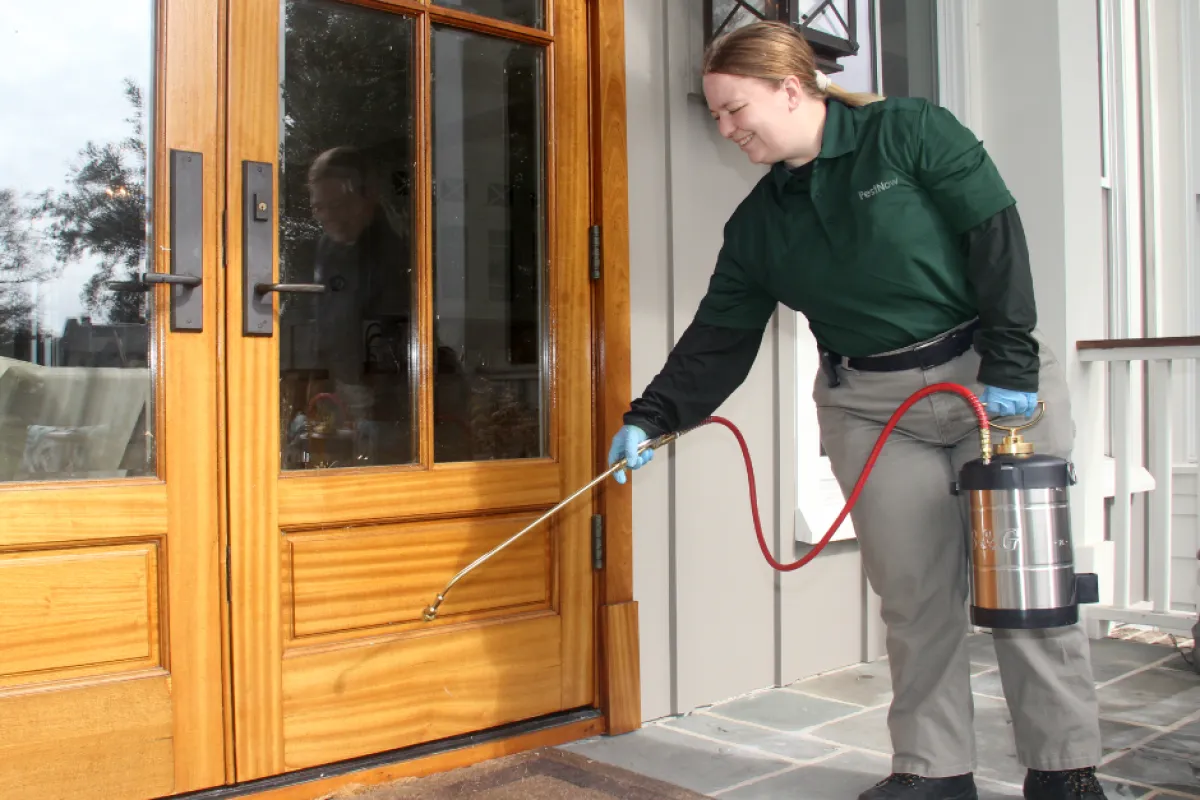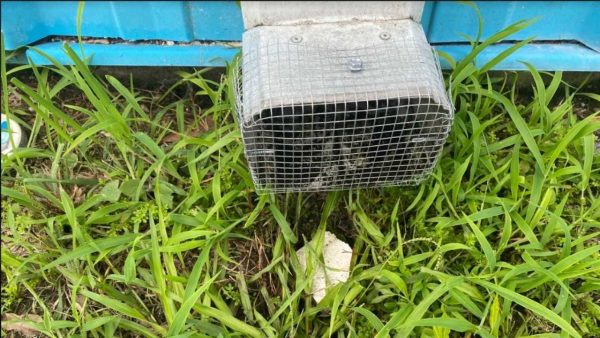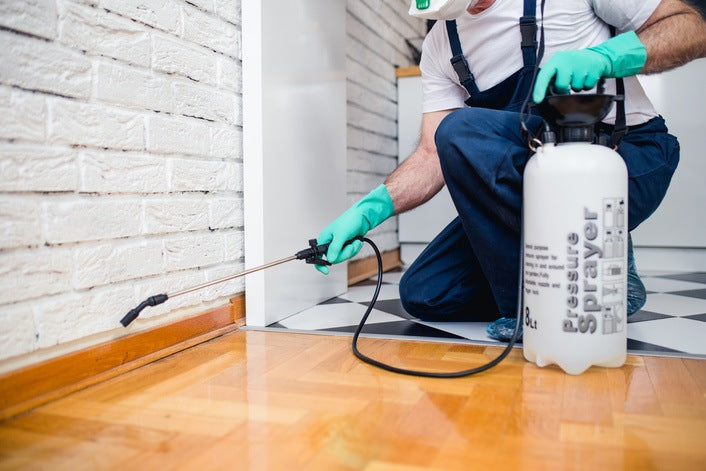Reveal the Relevance of Bug Control in Preserving a Healthy Environment and Treatment Techniques

The Function of Pests in Ecological Communities
Insects, often watched entirely as nuisances, play a diverse role in environments that is important for keeping environmental balance. They add significantly to different ecological processes, consisting of pollination, nutrition biking, and pest control. Several insect species, such as butterflies and , are essential pollinators for a broad array of plants, which in turn sustains biodiversity and food production.
Furthermore, bugs act as prey for many killers, creating an important web link in food webs. This interdependence guarantees the survival of numerous varieties and helps regulate populations within environments (Termite treatment Port Charlotte). Decomposer insects, such as specific beetles and fungi, are critical in damaging down natural issue, therefore enhancing dirt and assisting in nutrition recycling.
Alternatively, while bugs can be valuable, their overpopulation or intrusion right into non-native settings might interrupt these eco-friendly functions. This complexity emphasizes the relevance of recognizing parasite characteristics, as efficient bug administration techniques should consider both their ecological duties and possible influence on human activities. Balancing pest visibility while decreasing damage is vital for protecting the integrity of ecological communities and making certain farming productivity.
Health Threats Related To Insects
The visibility of bugs in different environments expands beyond their ecological duties, as they likewise pose significant wellness threats to people and animals. Lots of insects, consisting of insects, bloodsuckers, and rodents, are providers of diseases that can have severe health ramifications. Rats are recognized to transfer hantavirus and leptospirosis, both of which can lead to extreme respiratory and renal concerns, respectively.
Bugs such as ticks and mosquitoes are notorious for spreading out vector-borne diseases like jungle fever, dengue high temperature, and Lyme disease. These health problems can result in high morbidity and mortality prices, specifically in vulnerable populations. In addition, pests like vermins and cockroaches can worsen allergic reactions and asthma, adding to breathing troubles in people, especially those with pre-existing conditions.
Moreover, the visibility of pests can result in mental anxiety and pain, impacting overall well-being. Contamination of food and surfaces by insect droppings and stays can bring about foodborne illnesses, highlighting the importance of maintaining sanitary conditions. Understanding the health risks associated with parasites is crucial in identifying the need of reliable bug administration techniques to protect human and animal health.
Benefits of Effective Insect Control
Effective parasite control is crucial for keeping a healthy and balanced and risk-free setting, as it constantly alleviates the various risks linked with bug invasions. One of the primary advantages of reliable insect management is the decrease of health and wellness risks.
Additionally, reliable insect control safeguards residential or commercial property and structures from damages. Numerous pests, like termites and woodworker ants, can trigger comprehensive structural damages that may require pricey repair services. By proactively managing these services, homeowners and problems can safeguard their financial investments.
Another substantial advantage is the enhancement of overall lifestyle. A pest-free setting contributes to psychological well-being and decreases stress and anxiety connected with problems. Reliable pest control fosters a safer atmosphere for kids and family pets, ensuring that homes remain sanctuaries totally free from disease-causing microorganisms and dangerous chemicals.
Typical Bug Control Strategies

In the world of insect management, numerous methods are employed to combat problems efficiently. These techniques can be generally categorized into 3 main strategies: social, mechanical, and chemical controls.
Cultural control entails customizing practices to minimize insect recreation, survival, and facility. This might include plant rotation, proper cleanliness, and habitat control, which collectively produce an environment much less conducive to pest expansion.
Mechanical control employs physical techniques to remove pests (Termite treatment Port Charlotte). Techniques such as catches, vacuums, and barriers are frequently made use of to directly remove insects from an area. This technique is specifically reliable for taking care of rats and insects without making use of damaging chemicals
Chemical control includes the application of chemicals to handle bugs. These materials can be classified right into fungicides, pesticides, and herbicides, each targeting details kinds of parasites. It is crucial to use these chemicals judiciously, sticking to safety and security standards and laws to decrease possible damage to non-target types and the click to find out more atmosphere.
Each insect control technique has its constraints and benefits, and typically, an integrated approach combining numerous approaches produces the best lead to keeping a pest-free atmosphere.
Sustainable Pest Monitoring Practices
Lasting insect management techniques incorporate a series of strategies made to decrease environmental impact while properly managing pest populaces. These methods prioritize making use of environmentally pleasant techniques over chemical pesticides, thereby lowering the danger of harm to non-target types, including beneficial bugs, wildlife, and people.
Integrated Parasite Administration (IPM) is a cornerstone of lasting practices, integrating biological, cultural, mechanical, and chemical tactics to handle pests. For example, biological control includes presenting natural killers or parasites to reduce parasite populations. Cultural methods, such as plant rotation and polyculture, interrupt pest life process and enhance ecosystem durability.
Mechanical methods, such as barriers or catches, can effectively stop pest access without chemical treatment. Additionally, preserving healthy and balanced communities with correct soil management, plant health and wellness, and biodiversity can naturally minimize insect problems.
Education and recognition are important elements, encouraging people and communities to acknowledge bug hazards early and implement preventive site link steps. Termite treatment Port Charlotte. By promoting an alternative technique that stabilizes parasite control with eco-friendly honesty, lasting parasite monitoring techniques not just shield plants and frameworks however likewise add to a healthier atmosphere for future generations
Final Thought

Comprehending the health risks linked with bugs is important in recognizing the need of efficient insect management approaches to secure animal and human health.
Reliable bug control is important for maintaining a secure and healthy environment, as it continually alleviates the numerous threats connected with parasite invasions.Integrated Pest Administration (IPM) is a cornerstone of lasting practices, incorporating biological, social, mechanical, and chemical methods to handle parasites. By comprehending the duty of insects, identifying involved wellness risks, and using diverse treatment strategies, a sustainable technique to pest management can be accomplished. Integrated Parasite Administration (IPM) stresses a holistic approach that minimizes harm to helpful microorganisms while efficiently managing parasite populations.